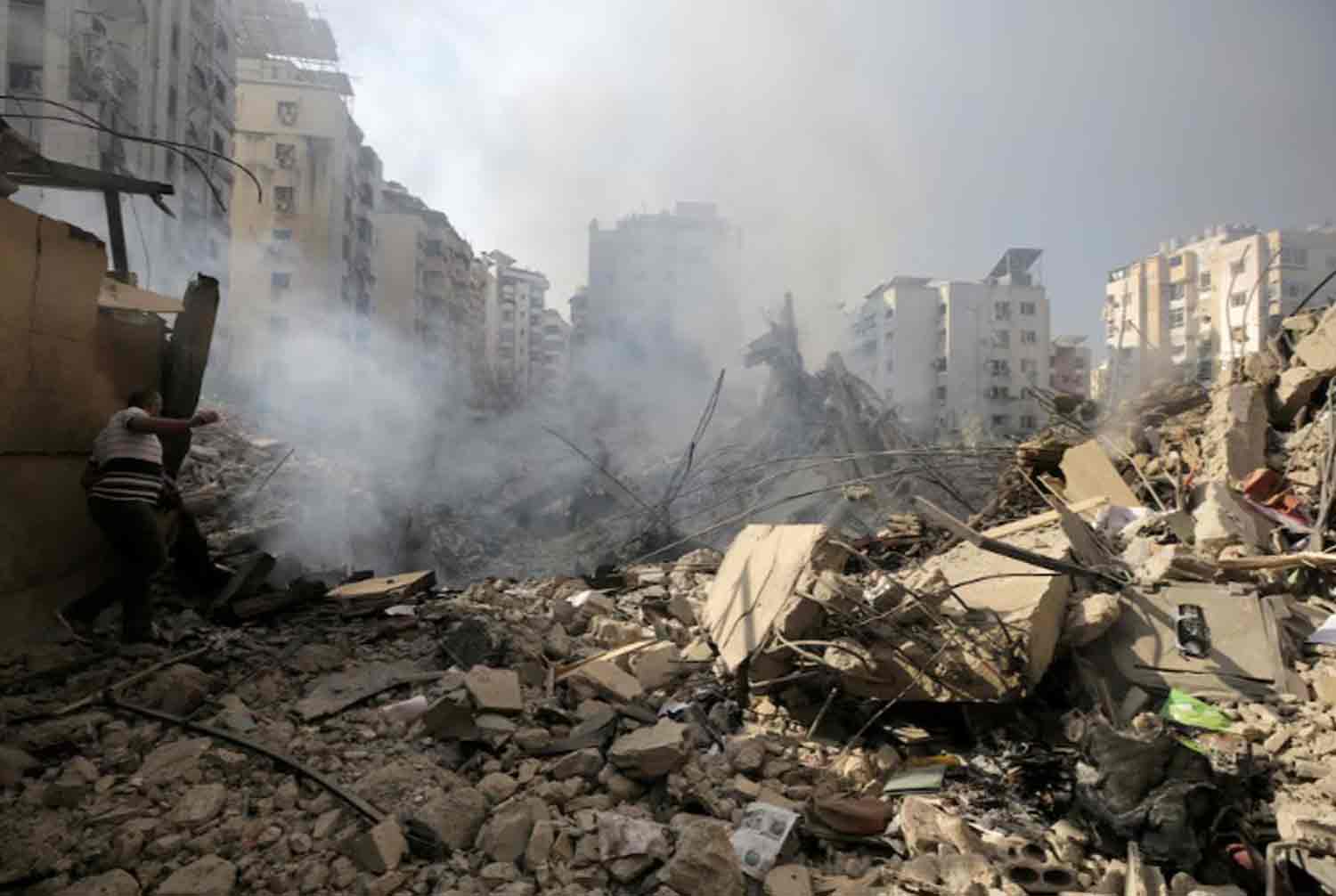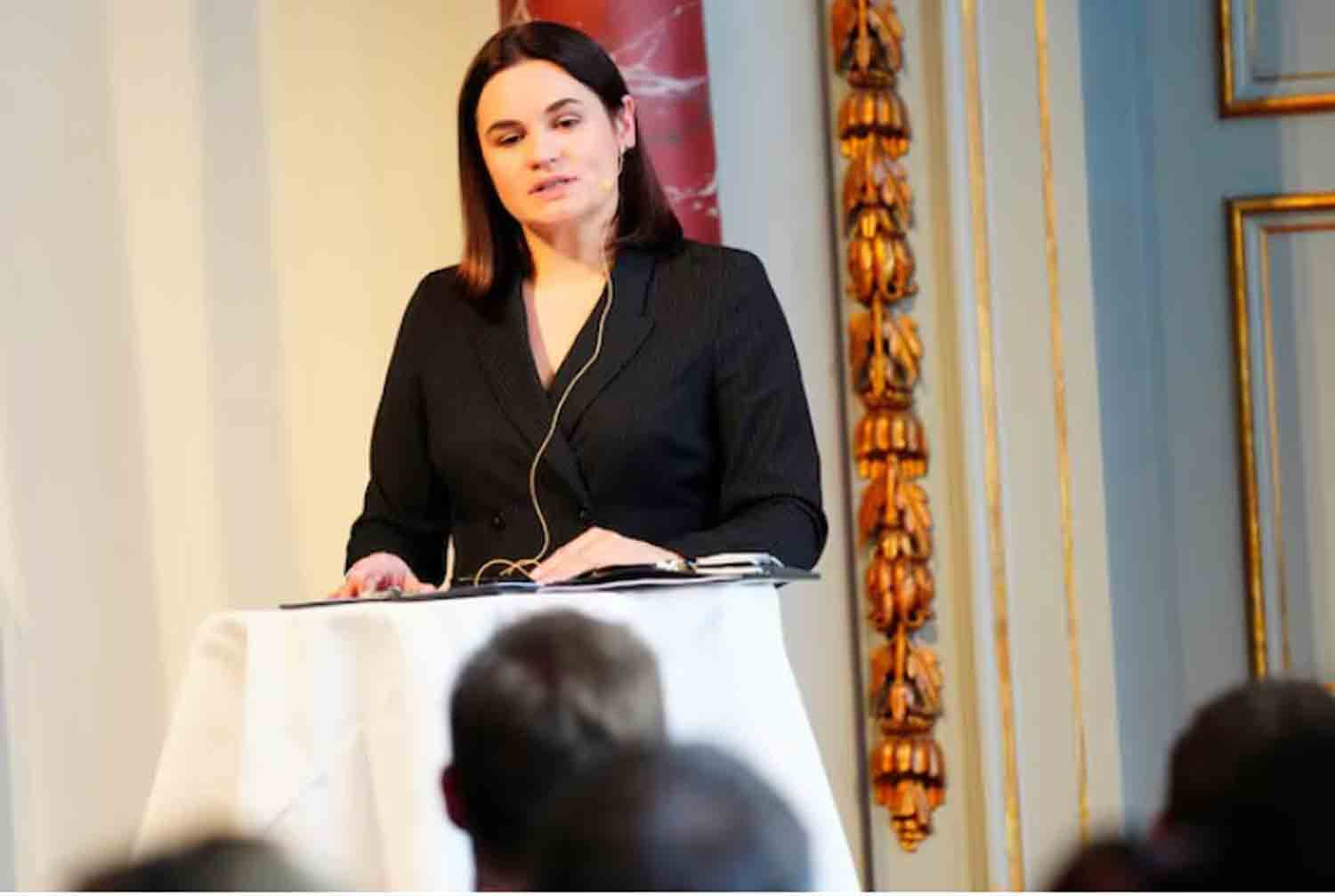Hezbollah fighters are prepared to respond to any potential Israeli ground invasion of Lebanon, stated the group’s deputy leader, Naim Qassem, during his first public address since the recent Israeli airstrikes that resulted in the death of their long-time leader, Hassan Nasrallah. Qassem asserted that Israel will not succeed in its objectives.
“We are ready to confront any scenario, and if the Israelis opt for a land incursion, our resistance forces are fully prepared for ground combat,” he declared from an undisclosed location.
His remarks came as Israeli airstrikes continued to target locations in Beirut and other areas of Lebanon, marking a two-week escalation of attacks that have reportedly resulted in the deaths of approximately 1,000 Lebanese and displaced one million people, according to the Lebanese government.
The death of Nasrallah, along with significant losses to the organization’s communication infrastructure and the assassination of other high-ranking officials, represents a severe setback for Hezbollah since its establishment by Iran in 1982 to combat Israel. Under Nasrallah’s leadership, Hezbollah evolved into Lebanon’s most formidable military and political entity, exerting considerable influence throughout the Middle East.
Now, Hezbollah faces the daunting task of finding a successor to a charismatic leader who was revered by millions for his defiance against Israel, despite being labeled a terrorist by the West.
“We will appoint a new secretary-general for the party as soon as possible… and we will ensure that leadership roles are filled on a permanent basis,” Qassem confirmed.
Qassem stated that Hezbollah’s fighters have persistently launched rockets reaching up to 150 km (93 miles) into Israeli territory and are prepared to confront any potential ground invasion by Israel. “What we are doing is the bare minimum… We understand that this battle may be prolonged,” he remarked. “We will achieve victory as we did during the liberation of 2006 against the Israeli adversary,” he continued, referencing the last significant conflict between the two sides.
In response, Israel, which has also targeted leaders of the Palestinian militant group Hamas during the Gaza conflict, asserts that it will take all necessary measures to ensure the safe return of its citizens to evacuated areas along its northern border. A ground invasion has not been ruled out, and Israeli forces have been preparing for such an operation.
“The removal of Nasrallah is a crucial step, but it is not the final objective. To guarantee the return of Israel’s northern communities, we will utilize all our resources, and this includes you,” Israeli Defence Minister Yoav Gallant informed troops stationed at the northern border.
Other militants hit
Hours prior to Qassem’s remarks from Hezbollah, Hamas reported that an Israeli airstrike resulted in the death of its leader in Lebanon, Fateh Sherif Abu el-Amin, along with his wife, son, and daughter in the southern city of Tyre on Monday.
Additionally, the Popular Front for the Liberation of Palestine announced that three of its leaders were killed in a strike in the Kola district of Beirut, marking the first such incident within the city’s boundaries.
The recent surge of Israeli assaults on militant positions in Lebanon is part of a broader conflict that extends from the Palestinian territories of Gaza and the occupied West Bank to Yemen, Iraq, and within Israel itself. This escalation has heightened concerns that the United States and Iran may become embroiled in the conflict.
Destabilization across the region
Recent developments suggest that Israel remains committed to its military offensive, even following the elimination of Nasrallah, a key ally of Iran in the “Axis of Resistance” opposing Israeli and U.S. influence in the region.
Nasser Kanaani, spokesperson for the Iranian Foreign Ministry, asserted that Tehran would respond decisively to what it termed Israel’s “criminal acts.” This statement was made in light of the recent killings of Nasrallah and Brigadier General Abbas Nilforoushan, a deputy commander of the Iranian Guard, who also perished in the same attacks on Friday.
Russia has indicated that Nasrallah’s death has resulted in significant destabilization across the region.
A representative for British Prime Minister Keir Starmer stated that the UK is advocating for a ceasefire, while simultaneously reaffirming its “ironclad” support for Israel’s right to defend itself.
The United States, a close ally of Israel, has consistently backed the nation despite rising concerns regarding substantial civilian casualties.
While Arab nations have publicly condemned Israel’s actions, none have taken tangible measures to compel Israel to limit its military operations, which has frustrated residents in Beirut, such as Abou Imad.
“You can see them (Israel) taking control over all the Arab nations and subjugating us. This apathy is disgraceful for both the Lebanese and Palestinian people,” he expressed.
Discover more from Defence Talks | Defense News Hub, Military Updates, Security Insights
Subscribe to get the latest posts sent to your email.




